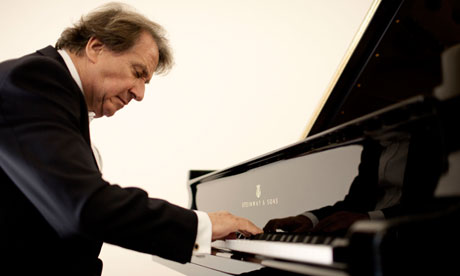Though he is perhaps not as well known to British concert-goers as he might be, the Austrian pianist Rudolf Buchbinder, now in his mid-60s, is highly regarded elsewhere in Europe, especially as an interpreter of the 19th-century repertoire. He previously recorded a complete cycle of the Beethoven piano sonatas, between 1977 and 1982, as part of a survey of all of Beethoven's piano works for Teldec; the new version is taken from concerts that he gave in Copenhagen in 2010 and 2011.
It's an uneven set, and much of it won't suit all tastes. Buchbinder is not a pianist who cultivates beauty of tone for its own sake, and the sound is raw and shallow-toned enough for me to have double-checked that he really was playing a modern Steinway and not a period piano. Crescendos are generally excitable and the climaxes are explosive, and while that may fit some of the sonatas, it does not suit all of them. When the emphases in a modest work such as the B flat Sonata Op 22 seem more appropriate for the Appassionata Op 57, the effect really is out of scale, though when he comes to it, Buchbinder's account of the Appassionata turns out to be one of the more convincing ones.
In fact, if there is too much in the early sonatas that sounds as if it's taking a sledgehammer to crack a nut, the performances generally get more interesting as they move forward chronologically. There are moments of untidiness and unstable rhythms in almost every work, as well as some rather mannered rubato, but there's also much to admire in, for instance, the muscularity of the outer movements of Les Adieux, Op 81a, or the way Buchbinder handles the A major Sonata Op 101, one of the most elusive in the entire 32. But paradoxes abound, too: after an account of the Hammerklavier Op 106 that sometimes seems like a free-for-all, no one would expect the performance of the E major Op 109 to have such poise, or the fugue of the A flat major Op 110 to be unfolded so serenely. In the end, though, the unevenness makes it hard to recommend.






